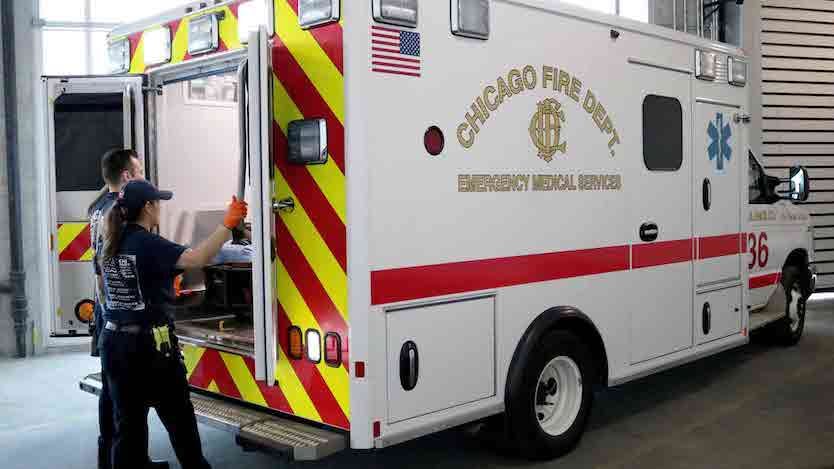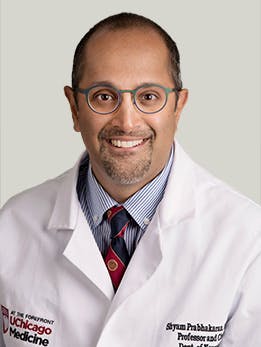UChicago Medicine receives $2.4M grant to prevent diagnostic errors for stroke

The University of Chicago Medicine has been awarded a $2.4M grant over four years from the Agency for Healthcare Research and Quality (AHRQ) to study and prevent diagnostic errors when treating stroke patients in the emergency department.
The project, called Targeted Healthcare Engineering for Systematic Interventions in Stroke (THESIS), is a collaboration among six Chicago-area hospitals that will use modern predictive analytics and artificial intelligence tools to analyze patient data and medical scenarios that can lead to misdiagnosis of stroke, and then develop tools and procedures to help emergency providers limit such errors.
“Diagnostic error is a major source of patient harm and poor quality of care in the U.S.,” said Shyam Prabhakaran, MD, Chair of the Department of Neurology at UChicago Medicine and co-principal investigator for the project. “If you make the wrong diagnosis, then downstream treatment decisions will be wrong too.”
The AHRQ is a division of the United States Department of Health & Human Services that supports research to improve the safety, quality and accessibility of health care. One area of focus is studying diagnostic errors, or mistakes that can lead to missed diagnoses, under- or over-diagnosing the severity of a problem, or making a false positive diagnosis.
We may not be able to predict the optimal intervention for every patient, but if we can be more alert in those cases it’s a big step forward.
Shyam Prabhakaran, MD, is the Chair of the Department of Neurology at UChicago Medicine. He is an internationally recognized leader in vascular neurology and stroke research and treatment, and has led projects focused on uncovering the underlying causes of recurrent strokes, improving stroke care, and optimizing patient outcomes and recovery.
Shyam Prabhakaran, MD, MS
